Understanding the Paradox in Recovery Settings
In the realm of addiction recovery, caffeine and nicotine occupy a unique niche. Both substances are legal and socially integrated into daily routines, yet they possess addictive qualities that demand scrutiny. This article delves into the intricate dynamics of caffeine and nicotine within recovery frameworks, analyzing why they are often excused and how their physiological, psychological, and societal impacts influence addiction recovery.
The Role of Caffeine and Nicotine in Recovery
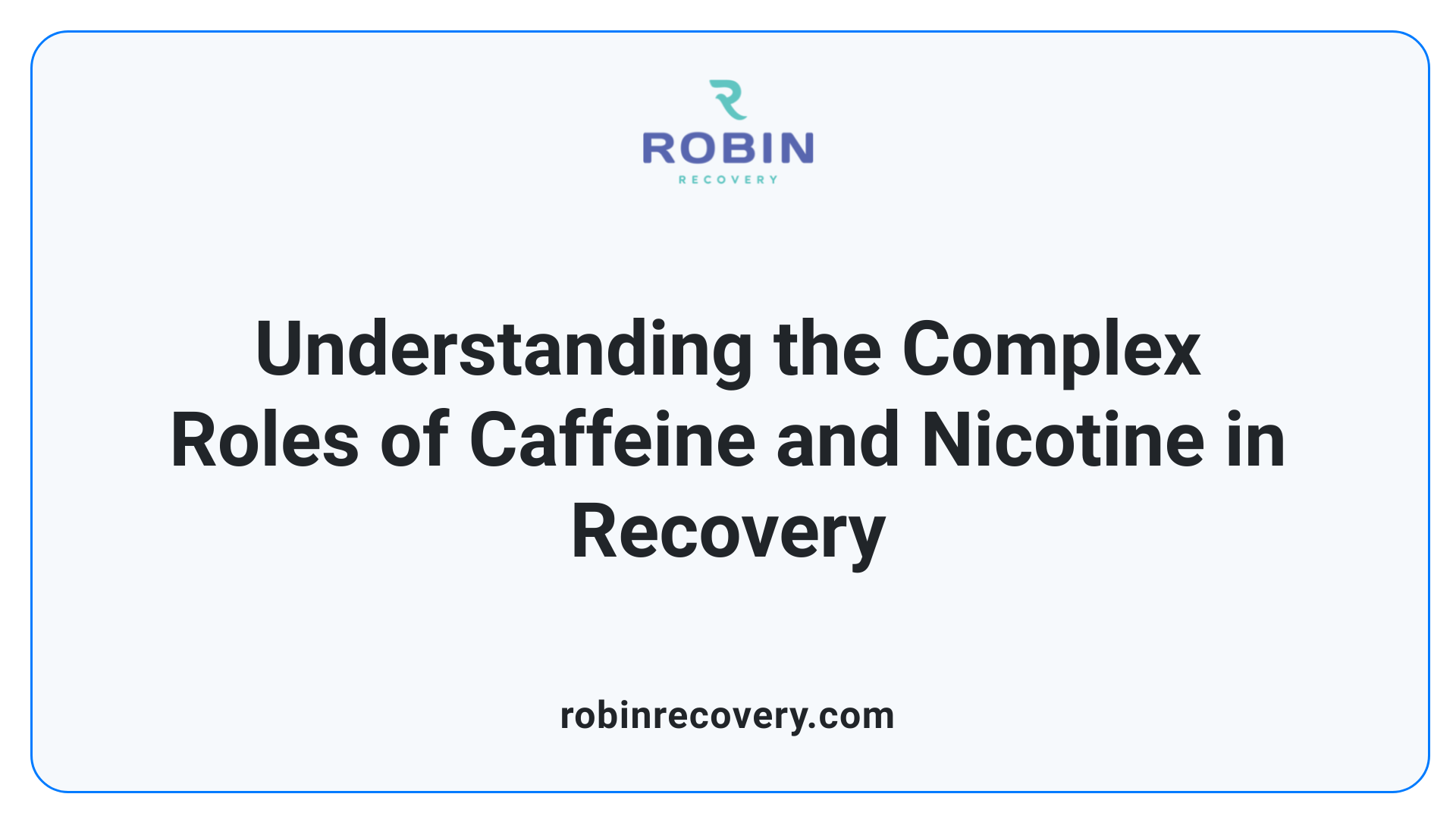
What role do caffeine and nicotine play in addiction recovery?
Caffeine and nicotine often play complex roles in addiction recovery. While both are classified as drugs and are legally consumed, their impact on recovery varies significantly. Caffeine, the world's most widely used psychoactive substance, can induce physical dependence with withdrawal symptoms similar to substance use disorders. It functions primarily as a central nervous system stimulant, promoting increased alertness and reducing feelings of fatigue.
However, excessive caffeine consumption may heighten anxiety and stress levels, potentially counteracting recovery efforts. High doses can lead to negative effects such as sleep disturbances, heightened jitteriness, and difficulty concentrating.
Conversely, nicotine presents a more problematic scenario. It is highly addictive, posing significant health risks that can complicate recovery from other substance abuse. Studies demonstrate that nicotine can dampen recovery progress, increasing the likelihood of relapse due to its reinforcing effects on the brain's reward pathways.
Positive and negative effects on recovery processes
In the context of recovery, nicotine can serve as a temporary coping mechanism for stress and anxiety, yet it ultimately undermines long-term health goals. Individuals might find comfort in smoking, but the health detriments associated with nicotine use, such as lung disease and cardiovascular issues, cannot be overlooked.
Caffeine, on the other hand, tends to be more socially accepted. In fact, its mood-boosting effects can assist recovering individuals in managing fatigue and enhancing productivity. However, it’s crucial to recognize that high doses may lead to dependency, complicating psychological and physical recovery.
| Substance | Role in Recovery | Positive Effects | Negative Effects |
|---|---|---|---|
| Caffeine | Supports alertness | Enhances mood and productivity | Can cause anxiety and sleep disturbances |
| Nicotine | Complicates recovery | Temporary stress relief | Highly addictive, health risks |
Effectively integrating these substances into recovery discussions is essential, considering their potential risks and benefits. This holistic approach may facilitate better treatment outcomes for individuals navigating their recovery pathways.
Legal Status and Social Acceptance: Dual Standards
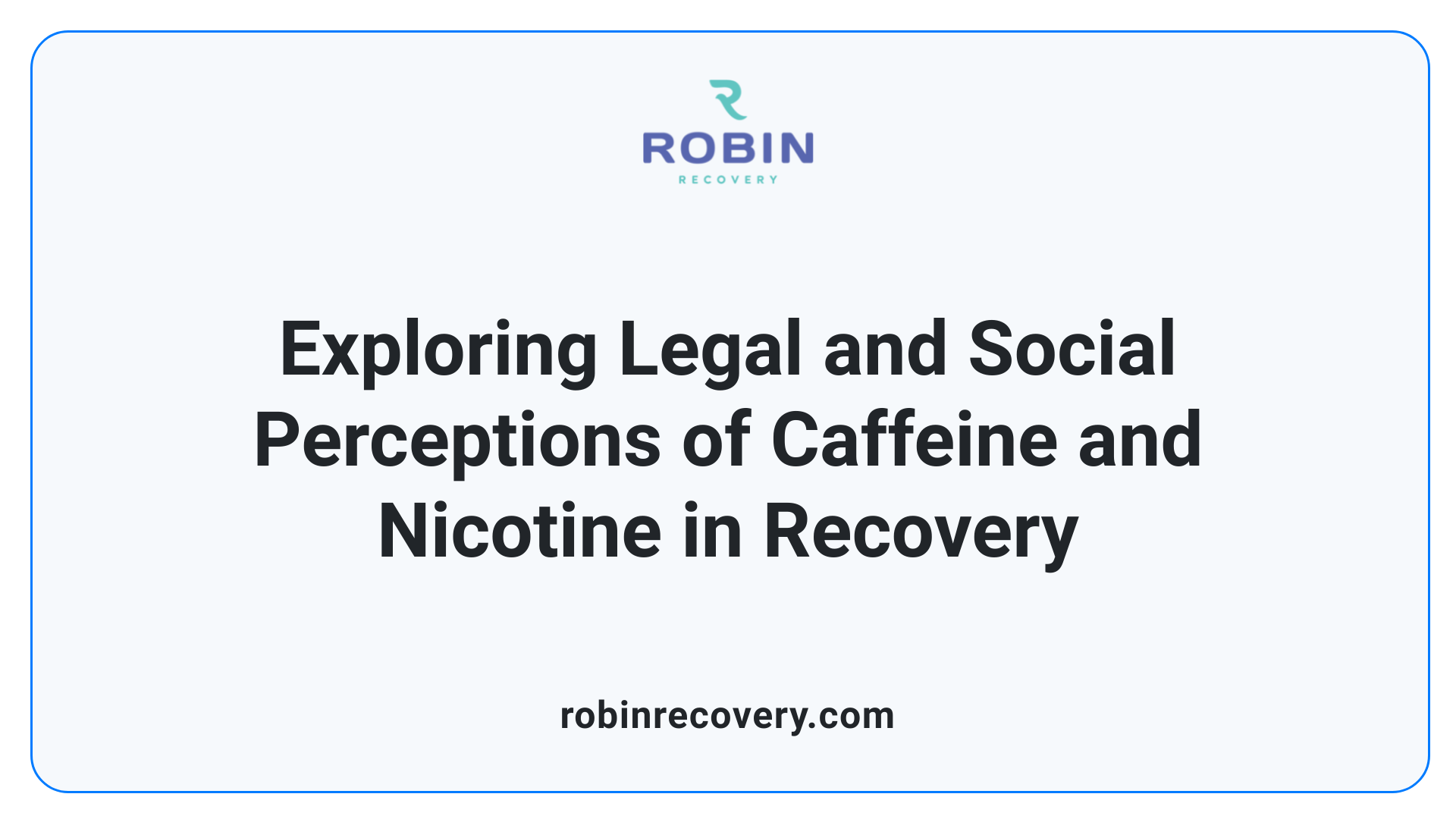
Why are caffeine and nicotine treated differently from other drugs in addiction recovery settings?
Caffeine and nicotine's role in addiction recovery is often complicated by their legal status and social acceptance. Both substances are widely consumed; approximately 90% of adults in North America regularly consume caffeine, while a significant portion, particularly among individuals in recovery, smoke cigarettes.
Despite being psychoactive substances capable of addiction, caffeine and nicotine are generally viewed as benign compared to illegal drugs like heroin or cocaine. This perception contributes to their classification in recovery settings, where they are less likely to be prioritized for cessation. Participants in programs like Alcoholics Anonymous frequently consume coffee, with studies indicating 88.5% engagement in coffee drinking compared to 57% in the general population. This prevalent consumption illustrates how embedded these substances are in social interactions and daily habits.
While caffeine can enhance alertness and productivity, its potential for creating dependence—albeit milder than nicotine—can complicate recovery. Nicotine, on the other hand, is recognized for its strong addictive properties and associated health risks, making it problematic for individuals recovering from other substance use disorders.
Understanding the addictive nature of caffeine and nicotine is essential in addressing their impacts on the recovery journey. Careful consideration of their role in recovery programs is needed to provide comprehensive support for individuals navigating multiple dependencies.
| Substance | Legal Status | Societal Perception | Withdrawal Symptoms |
|---|---|---|---|
| Caffeine | Legal and accepted | Socially embedded, often underestimated | Headaches, fatigue, irritability |
| Nicotine | Legal but stigmatized | Common in social settings, recognized as harmful | Cravings, irritability, anxiety |
Physiological and Psychological Implications
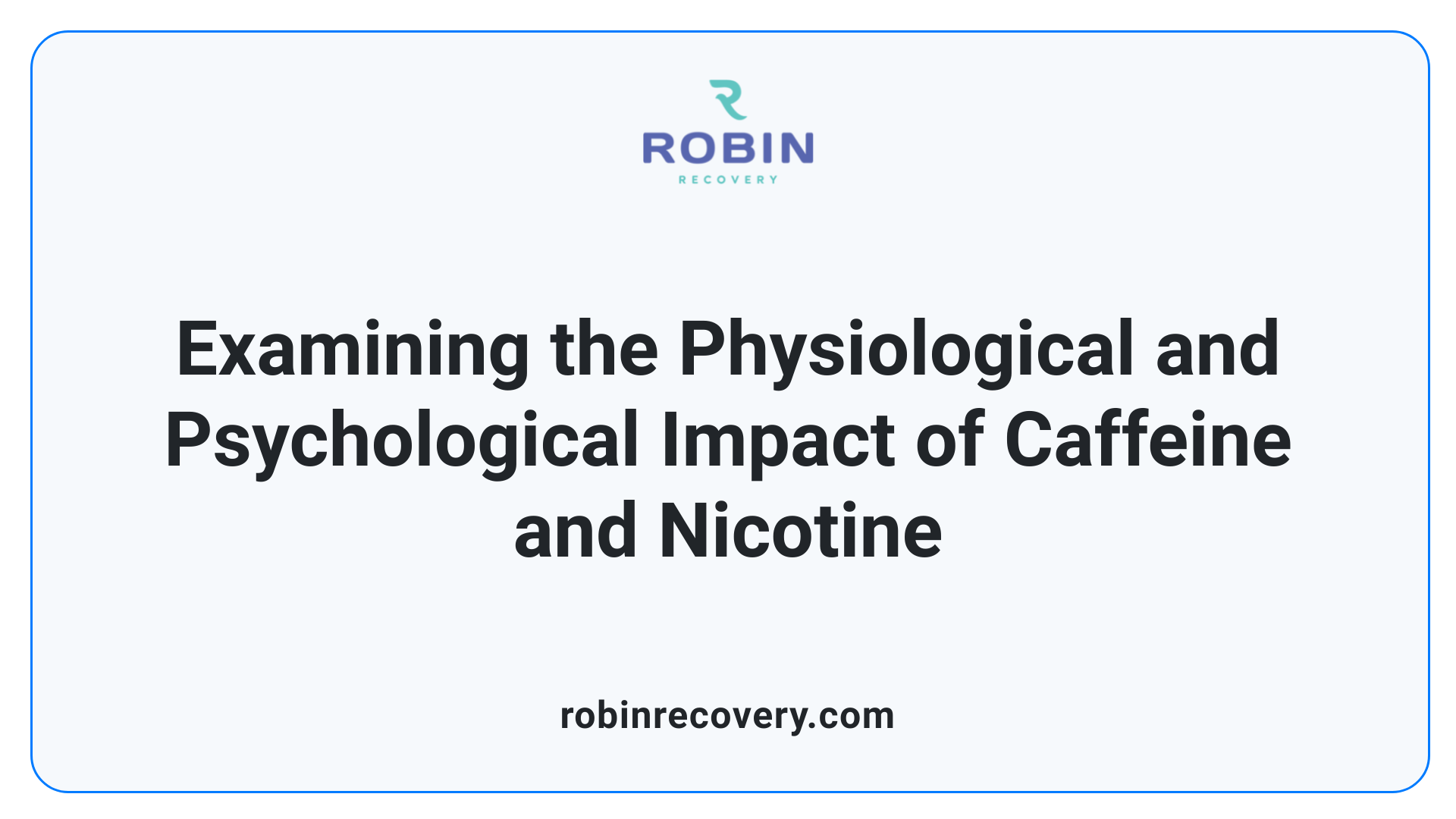
How do caffeine and nicotine physiologically and psychologically affect addiction recovery?
Caffeine and nicotine significantly affect both the physiological and psychological aspects of addiction recovery. Their impact on brain chemistry can complicate the recovery process for individuals battling substance use disorders.
Impact of caffeine and nicotine on brain chemistry
Nicotine interacts with nicotinic acetylcholine receptors, leading to dopamine release, similar to the pathways activated by alcohol and other addictive substances. This stimulation reinforces the addictive behavior of nicotine use, which can heighten cravings and increase the risk of relapse among recovering individuals. In contrast, caffeine inhibits adenosine release, enhancing alertness and cognitive function, thus creating a temporary boost in mood and energy levels.
| Substance | Main Effect | Impact on Addiction Recovery |
|---|---|---|
| Caffeine | Increases alertness and reduces fatigue | Can provide temporary relief and enhance productivity but may lead to dependence. |
| Nicotine | Activates reward pathways | Highly addictive; can undermine recovery efforts and lead to co-occurring addictions. |
Effects on recovery processes and challenges
The challenges posed by nicotine addiction are particularly prominent in populations recovering from alcohol use. Studies indicate that a significant percentage of individuals in recovery smoke, with as many as 56.9% of participants in recovery programs smoking cigarettes. This co-occurrence complicates recovery, as smoking has been linked to poorer treatment outcomes and can impair cognitive function during the recovery process.
Quitting smoking, however, can substantially improve long-term abstinence rates from other substances. Research shows that those who stop smoking may increase their likelihood of maintaining sobriety by approximately 25%. Hence, addressing nicotine dependence in recovery programs is crucial for effective treatment strategies, highlighting the complex relationship between nicotine, caffeine, and recovery.
Societal Perceptions and Recovery Culture
What are societal perceptions of using caffeine and nicotine in recovery settings?
Societal perceptions of caffeine and nicotine use in addiction recovery settings are mixed, reflecting both benefits and concerns. On one hand, caffeine is widely considered a safer alternative to more harmful substances. It’s frequently used to combat fatigue and boost productivity, especially among recovering individuals who often struggle with low energy levels.
However, the potential for physical addiction to caffeine raises valid worries among recovery advocates. Increased caffeine intake is common; many recovering individuals consume it daily, with studies indicating that over 88% of participants in Alcoholics Anonymous drink coffee. Despite its popularity, excessive caffeine consumption can lead to heightened anxiety, sleep disturbances, and negative impacts on mental health due to alterations in neurotransmitter levels.
What influence do social norms have on recovery practices?
The influence of social norms on recovery practices is evident in the acceptance of both caffeine and nicotine. While nicotine is often stigmatized due to its association with tobacco health risks, caffeine’s widespread acceptance can obscure its potential harms. This discrepancy may result in individuals relying on caffeine to cope, counteracting efforts toward emotional stability.
Factors such as the normalization of coffee consumption in social settings, particularly among those in recovery, suggest an unexamined reliance that may complicate recovery plans. Therefore, there is a pressing need for increased awareness surrounding the implications of caffeine and nicotine as coping mechanisms amid the recovery journey.
In summary, while caffeine is viewed sympathetically, its role in recovery requires a critical approach to ensure the well-being of those seeking to overcome addiction.
Unpacking Withdrawal and Addiction Potential
What are the withdrawal symptoms and addiction potential associated with caffeine and nicotine?
Both caffeine and nicotine exhibit significant addictive potential, leading to a range of withdrawal symptoms when consumption is reduced or stopped. For caffeine, withdrawal symptoms typically manifest as:
- Headaches: Often described as dull or throbbing.
- Irritability: Individuals may feel more easily frustrated.
- Fatigue: A common response as the body adjusts to the absence of stimulation.
- Depressed Mood: A drop in overall mood can be noted as neurotransmitter levels fluctuate.
Conversely, nicotine withdrawal tends to be more intense and includes:
- Cravings for nicotine: Strong urges to smoke or consume nicotine products.
- Mood Swings: Fluctuations in emotional stability are common.
- Anxiety: Increased feelings of anxiousness as the body seeks its supply.
- Depression: Some individuals may experience deeper moods or depressive episodes.
Research indicates that individuals in recovery from alcohol use disorders often also struggle with nicotine addiction. Studies show that smokers in recovery are twice as likely to relapse than non-smokers. Interestingly, quitting nicotine is associated with a 25% increase in the likelihood of maintaining long-term abstinence from alcohol and other drugs. This illustrates not only nicotine's addictive nature but also highlights its significance in recovery programs.
Thus, while caffeine can create mild dependence, nicotine's effects and the challenges it poses during recovery underscore the complexity of addressing these substances in addiction treatment programs. Addressing both addictions is crucial for achieving a successful outcome in overall recovery efforts.
Examining the Acceptability of Caffeine and Nicotine
What complexities surround the acceptability of caffeine and nicotine in addiction recovery?
The complexities surrounding the acceptability of caffeine and nicotine in addiction recovery are multifaceted. Both substances are legal and socially accepted, often integrated into daily routines, which can create ambivalence in recovery programs. This acceptance may lead individuals to use caffeine primarily as a coping mechanism to manage fatigue and increase alertness during recovery. However, the stimulatory effects of caffeine could inadvertently mimic or exacerbate addiction-like behaviors, raising concerns about dependency.
Nicotine presents similar challenges in the context of recovery. Highly addictive with severe withdrawal symptoms, nicotine complicates recovery efforts, particularly for individuals transitioning from other substance abuses. The risk of substituting one addiction for another is real, as some may lean on nicotine for relief amidst stress and cravings associated with addiction recovery.
Social perceptions also play a crucial role in determining the acceptability of these substances. While caffeine's stimulating qualities are often viewed positively, nicotine faces stigma due to its association with serious health risks. This disparity can lead to misunderstandings about the true risks and effects of both substances in recovery settings.
Challenges and debates within recovery circles
In recovery circles, debates persist regarding the role of caffeine and nicotine. Proponents of including caffeine suggest that its mood-enhancing effects might aid motivation and productivity in recovery. Conversely, critics argue that its potential for addiction and negative impacts on mental health warrant caution.
Nicotine, while providing temporary stress relief, is often seen as counterproductive in recovery due to its association with various health risks. The American Heart Association emphasizes the difficulty of overcoming nicotine addiction, highlighting its complexities in the recovery process.
Ultimately, the tension between societal norms, health implications of caffeine and nicotine, and their roles in personal recovery journeys necessitates nuanced discussions and further research in addiction recovery frameworks.
Psychophysiological Effects of Caffeine and Nicotine
How caffeine and nicotine alter brain activity
Both caffeine and nicotine are psychoactive substances that significantly affect brain function. Caffeine primarily increases alertness by inhibiting adenosine release, which enhances dopaminergic activity. This effect leads to increased wakefulness and productivity, making caffeine the world's most widely used stimulant. Nicotine, meanwhile, interacts with nicotinic acetylcholine receptors and leads to the release of dopamine, reinforcing its consumption. This surge in dopamine can create pleasurable sensations but is also what makes nicotine highly addictive.
Links to addiction pathways and recovery interference
Both substances share common traits as central nervous system stimulants, with caffeine creating a mild dependence through withdrawal symptoms like fatigue and headaches while nicotine can cause severe addiction characterized by cravings, irritability, and difficulty concentrating. Interestingly, studies show that many individuals in recovery from substance use disorders still consume caffeine regularly. While caffeine's stimulating effects can assist recovery by combating fatigue, nicotine's health risks, such as increased anxiety and respiratory illnesses, can complicate recovery efforts. Therefore, understanding the balance between using these stimulants during recovery is critical, as they can either aid or hinder progress based on individual circumstances.
With societal acceptance of caffeine and stigma surrounding nicotine, there exists a complex dynamic in how these substances are perceived and managed within recovery programs. Comprehensive approaches that include both are essential for individuals seeking to overcome multiple dependencies.
The Complexity of Caffeine in Recovery
Dietary Implications of Caffeine on Recovery
Caffeine is the most widely consumed psychoactive drug in the world. Roughly 90% of adults in North America consume it daily, primarily through coffee, tea, and energy drinks. In a recovery context, caffeine can temporarily combat fatigue and increase productivity, which may be beneficial for individuals trying to regain their footing. However, excessive consumption can lead to toxic effects and nutrient absorption issues. Caffeine can interfere with the absorption of crucial vitamins and minerals like iron, calcium, and potassium, which are essential for physical recovery.
Potential Benefits and Risks Regarding Mental Health
Caffeine's stimulating effects can enhance alertness and improve mood, particularly among those dealing with depression and anxiety. Studies suggest that moderate coffee consumption might reduce the risk of suicide and promote better mental health outcomes. However, the risks are significant. High caffeine intake is associated with increased anxiety and stress levels, potentially undermining mental health stability during recovery. Additionally, caffeine withdrawal may produce negative symptoms such as headaches, irritability, and cognitive fog, complicating the recovery journey. Understanding these nuances is crucial for integrating caffeine consumption into recovery programs appropriately.
Nicotine's Unique Challenges in Recovery
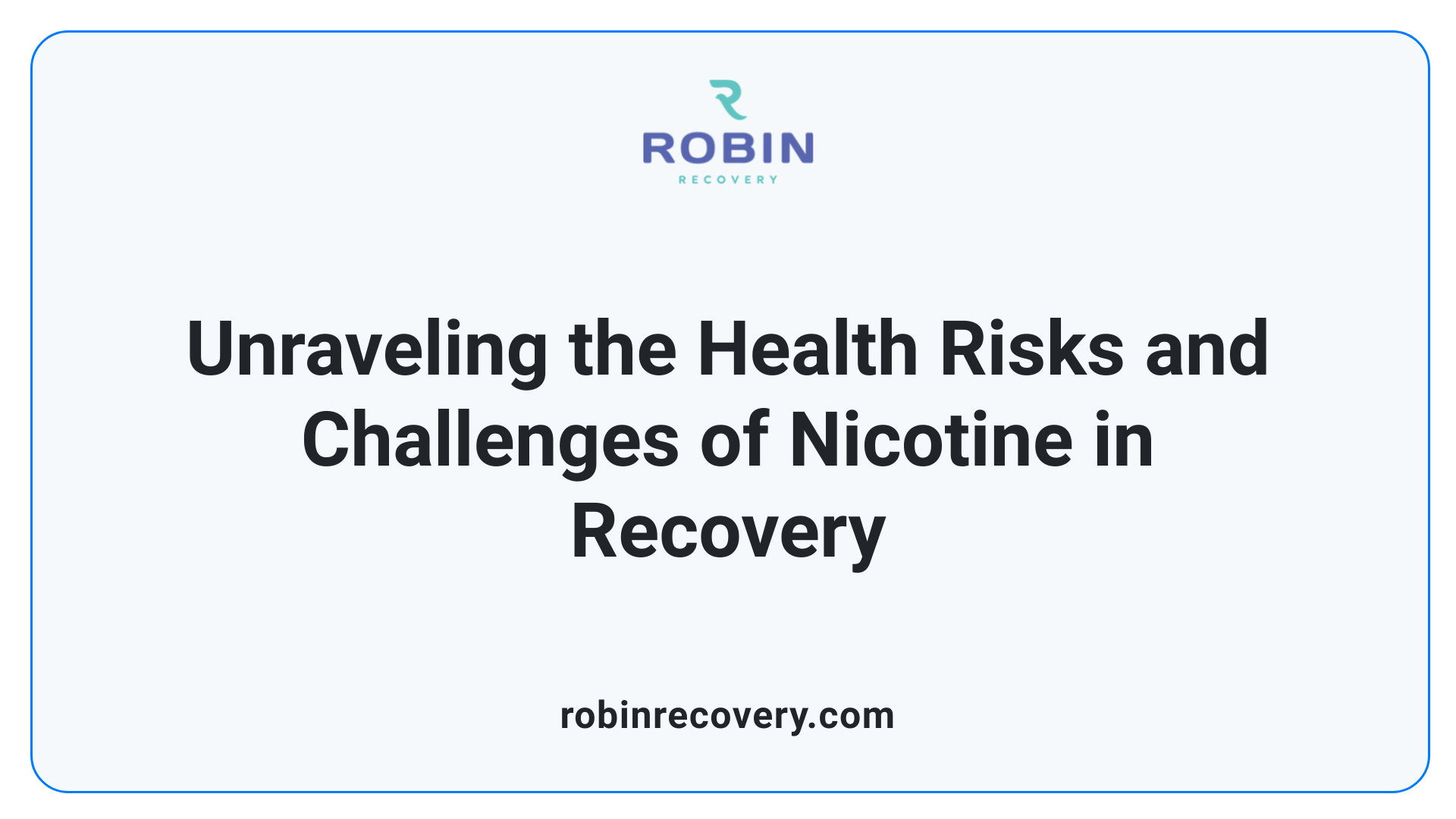
Nicotine-related health risks during recovery
Nicotine presents notable challenges for individuals in recovery from substance use disorders (SUDs). The drug's stimulant effects can complicate recovery by increasing heart rate and blood pressure, leading to potential cardiovascular issues. Moreover, nicotine's high addiction potential, akin to that of heroin and cocaine, makes it difficult for those in recovery to overcome cravings and withdrawal symptoms. When consuming nicotine, individuals may face irritability, anxiety, and concentration difficulties, all of which could impede progress in overcoming other substances.
Additionally, nicotine affects how the body absorbs caffeine. This dynamic can mean that recovering smokers may require more caffeine to achieve the same stimulating effects as non-smokers, exacerbating the risk of caffeine dependence. The health risks tied to nicotine use, such as heightened anxiety and the potential for lung-related diseases, further outline its negative implications for overall recovery.
Importance of including nicotine cessation in treatment
Integrating nicotine cessation into SUD recovery programs is crucial for enhancing treatment outcomes. Research indicates that individuals who quit smoking during treatment for other addictions show a 25% greater likelihood of maintaining long-term abstinence from their primary substance. However, nicotine cessation is often overlooked in recovery protocols, despite its prevalence among individuals with SUDs; over half of participants in studies have reported smoking cigarettes.
Ignoring nicotine can lead to heightened relapse rates and diminished outcomes. Comprehensive treatment plans that incorporate behavioral therapies tailored for nicotine can significantly improve overall recovery effectiveness, ensuring individuals are truly addressing all aspects of their addictions.
Recovery Support and Treatment Approaches
Integration of Smoking Cessation in Recovery Plans
The unique challenges posed by nicotine addiction often complicate recovery from other substance use disorders (SUDs). It is essential to integrate smoking cessation programs into comprehensive recovery strategies. Research shows that smokers who quit during treatment for other addictions are 25% more likely to maintain long-term abstinence. However, many recovery facilities overlook nicotine dependency, potentially jeopardizing overall recovery outcomes.
Exploration of Alternative Therapies for Nicotine Addiction
To address the challenges of nicotine addiction, various behavioral therapies, such as Cognitive Behavioral Therapy (CBT), motivational interviewing, and mindfulness techniques, can be particularly effective. These approaches help individuals manage their cravings and develop healthier coping strategies. Additionally, integrating technology support, such as mobile applications designed for addiction treatment, can provide ongoing encouragement and accountability.
Despite the prevalence of caffeine among individuals in recovery—88.5% of Alcoholics Anonymous participants consume coffee—its role often remains unexamined. Caffeine can serve as a temporary energy booster and mood lifter, which aids in managing recovery fatigue. Nevertheless, it is crucial to be mindful of excessive consumption, which might impede recovery due to increased anxiety or sleep disturbances.
To foster a more effective recovery environment, practitioners should evaluate and incorporate tailored approaches addressing both nicotine and caffeine addiction, paving the way for holistic healing.
Personal Stories: Navigating Caffeine and Nicotine in Recovery
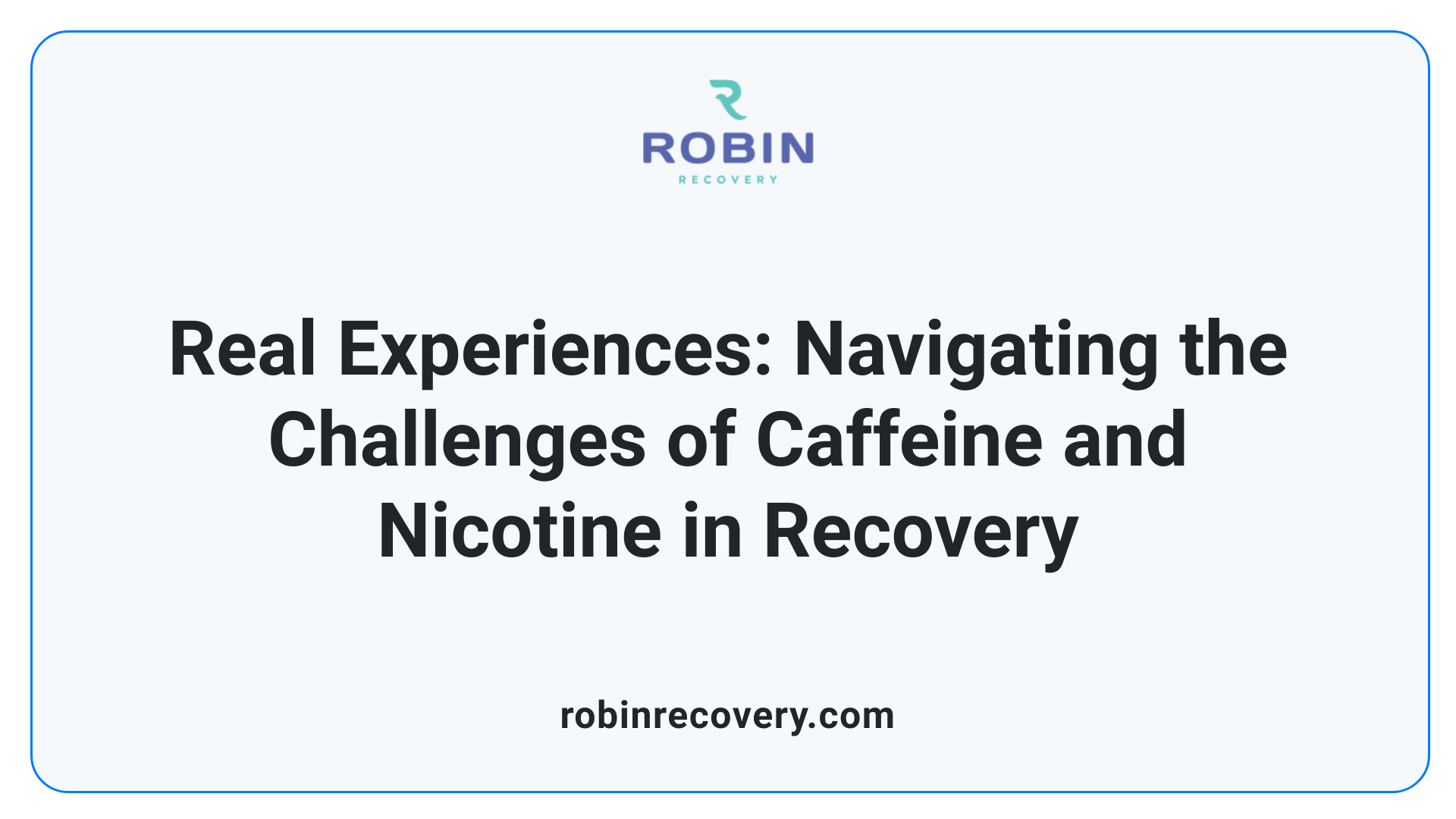
Individual Experiences with Caffeine and Nicotine
Many individuals in recovery from substance use disorders share a complex relationship with caffeine and nicotine. For some, caffeine is a lifeline that helps combat fatigue during the challenging recovery process. One recovering alcoholic mentioned, "Coffee has been my reliable companion. It gives me the energy to face each day after the fatigue of withdrawal."
Conversely, others highlight nicotine as a double-edged sword. Some recovering individuals have resorted to smoking to cope with stress and anxiety that can arise during recovery. A former addict stated, "I started smoking to calm my nerves, but it quickly became its own addiction. It’s a harsh reminder of how difficult it can be to break free from dependencies."
Perceptions of Addiction Professionals and Recovering Individuals
Perceptions of caffeine and nicotine in recovery settings vary widely. Addiction professionals often debate the integration of these psychoactive substances in treatment programs. While caffeine is frequently accepted due to its social status and mild dependence form, nicotine is often viewed more critically. An addiction counselor remarked, "Caffeine can enhance alertness, but nicotine’s risks make it a serious concern for anyone recovering from substances."
Recovering individuals acknowledge this dichotomy. Many believe that while caffeine can be managed and potentially beneficial, nicotine's health risks complicate their recovery journey. As discussed in support groups, there is a growing anxiety about the long-term implications of cigarette use, with some members advocating for comprehensive strategies to include tobacco cessation in recovery plans.
Rethinking Recovery Approaches
As the conversation around addiction recovery evolves, so should our understanding of caffeine and nicotine's impact on this journey. While their legal status and social acceptability contribute to maintaining their presence in recovery settings, it's crucial to reevaluate these substances' roles and address the complexities they present. By doing so, we can enhance recovery strategies, mitigate relapse risks, and support individuals in achieving lasting sobriety and holistic well-being.
References
- Caffeine and Nicotine are Drugs, Why are They Excused in Recovery?
- Caffeine and Nicotine are Drugs, Why are They Excused in Recovery?
- Caffeine And Nicotine Are Drugs, Why Are They Excused In ...
- Caffeine and Nicotine are Drugs, Why are They Excused in Recovery?
- Caffeine and Nicotine are Drugs, Why are They Excused in Recovery?
- Caffeine and Nicotine are Drugs Why are They Excused in Recovery?
- Nicotine and Addiction Recovery: Does It Help or Hinder?
- Why Avoid Caffeine in Addiction Recovery
- An empirical perspective on cigarette use in substance use recovery
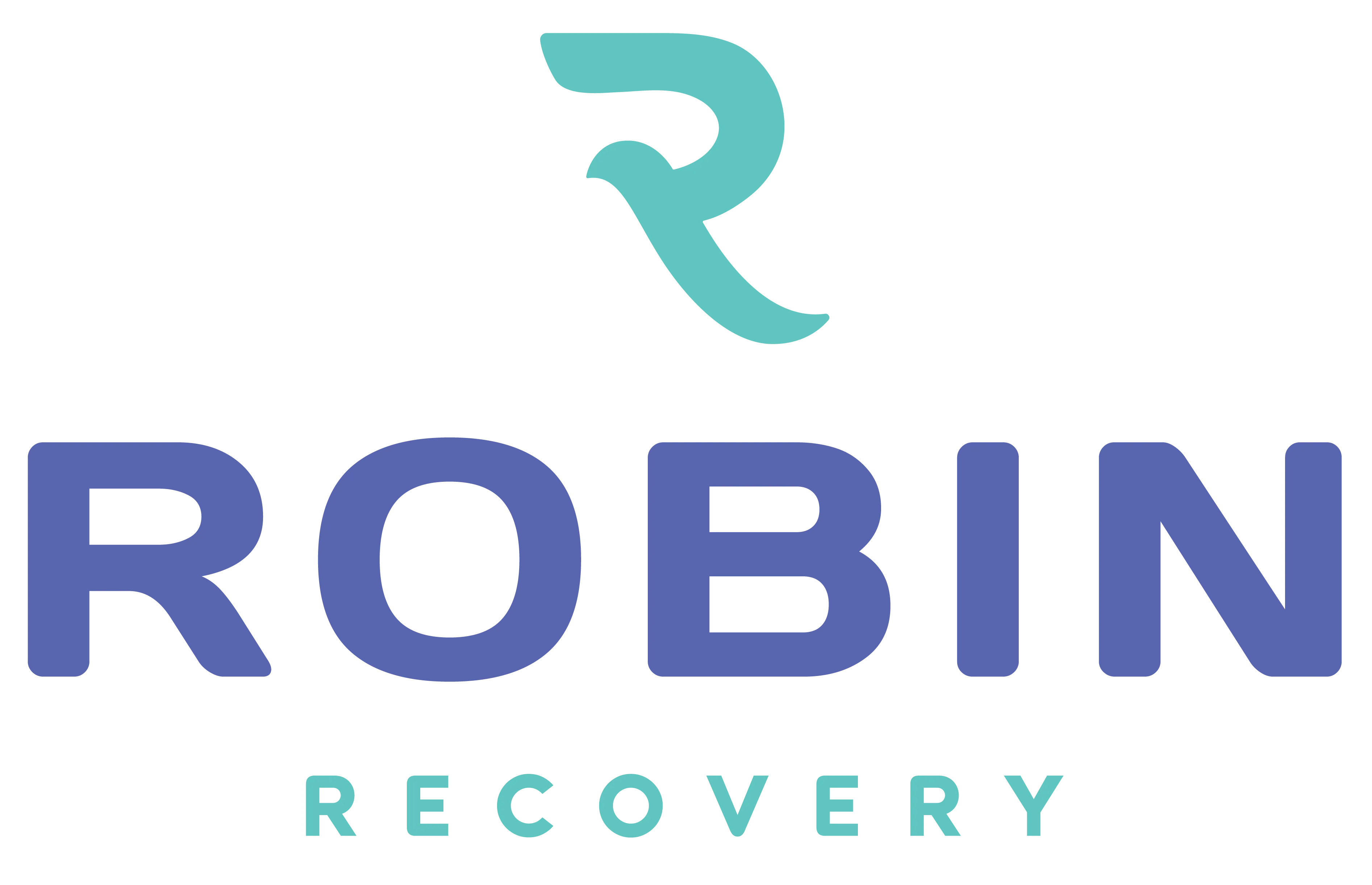
.svg)

.svg)

.svg)
.svg)






































































































